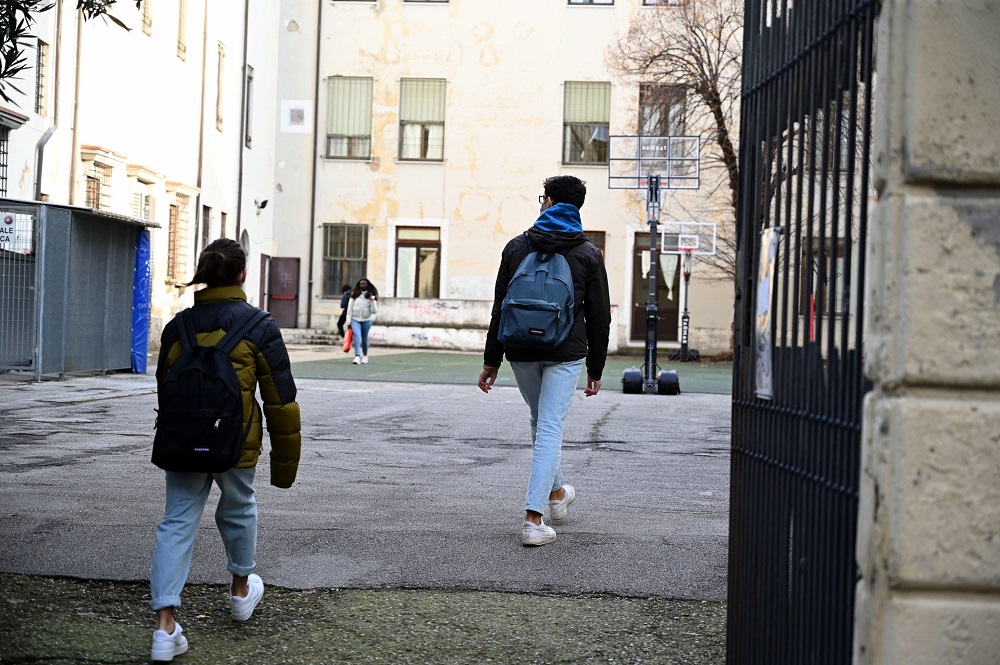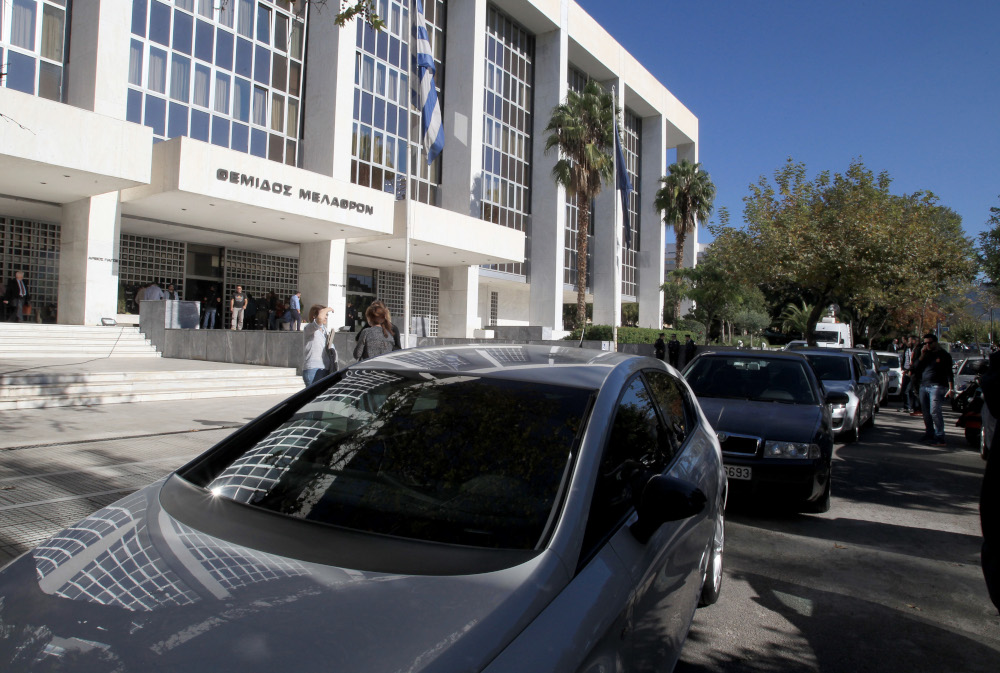
Gov’t spokeperson: Four reasons for reopening schools as normal

File photo: Yiannis Economou noted that, from the start, the government’s intention had been for schools to go back as normal but for this to happen with a methodology, based on the advice of the scientific community. EPA/CLAUDIO GIOVANNINI
Government spokesperson Yiannis Economou outlined four reasons why the government decided to reopen schools despite the Omicron surge, speaking on SKAI radio on Wednesday, and stressed that it was not possible to keep other economic activities going while schools stay shut.
“The recommendations of the experts always play an important role. It is the government which makes the final decisions,” he added.
He noted that, from the start, the government’s intention had been for schools to go back as normal but for this to happen with a methodology, based on the advice of the scientific community, which would “ensure to the greatest degree the health of the children, their parents and teachers.”
Economou explained that the decision was based on four key reasons:
“First of all, there are the characteristics of this variant…We have a variant that is transmitted extremely quickly but does not cause severe illness in children and in vaccinated persons. We now know this with a great degree of certainty. The second reason is that it has been proved, based on the experience we have had from September until now, that children are more protected in the school environment than they are outside it. If we kept children back until a week or 10 days later, no one could guarantee that in the playgrounds or other places they would go they would wear their masks and be more protected. Therefore, it follows, they are more protected within the school environment than outside it. The third reason is what is happening in the rest of Europe. There is no country that is keeping schools shut. And the fourth reason is that there is nothing that can replace teacher-student communication…”
The nature of the Omicron variant would very likely lead to many classes shutting down initially, he added, but this was a far cry from a horizontal decision to shut all schools.
“The protocol we had over the previous period worked with safety. The 50 pct+1 was judged a safe criterion, based on the experience of the previous period and the characteristics of the Omicron infection, as it is now for both health protection and educational reasons,” Economou said. He criticised suggestions by the opposition that classes shut for three days when the first case is diagnosed, saying it would make schools effectively unable to function and lead to the horizontal closure of classes.
“For anything to succeed, even more so in education, there has to be the cooperation of teachers and parents, which existed to the highest degree in the previous period,” he added, stressing that schools will start next Monday with in-person teaching, following the specific protocols.
Economou said that the government was also prepared for problems that may arise due to public-sector staff having to isolate due to Covid-19 in the coming days, especially as the period of self-isolation has been reduced to five days.
“There is no doubt that some gaps may be observed. Due to the explosion in cases and the speed of incubation of the disease, many more people will fall sick much faster and much more mildly than in the previous stage. This will have its repercussions. We see what is happening in the rest of the world. Everyone is prepared to handle it in some way. For the time being, it is manageable, as the shorter period of quarantine allows people – who do not have a problem with their health – to quickly return to their job,” he said.
The impact of this would be minimised by remote working, wherever this was possible, or by reorganising personnel.
He also stressed that the government will do everything in its power to increase vaccination coverage and will continue efforts to put pressure and persuade unvaccinated people to get the vaccine but also to protect them, such as the mandatory vaccination of people over 60.
Source: ANA – MPA
Ακολουθήστε τη HELLAS JOURNAL στη NEWS GOOGLEGovernment sets 5,000-euro fine for overcharging for PCR, rapid testing

